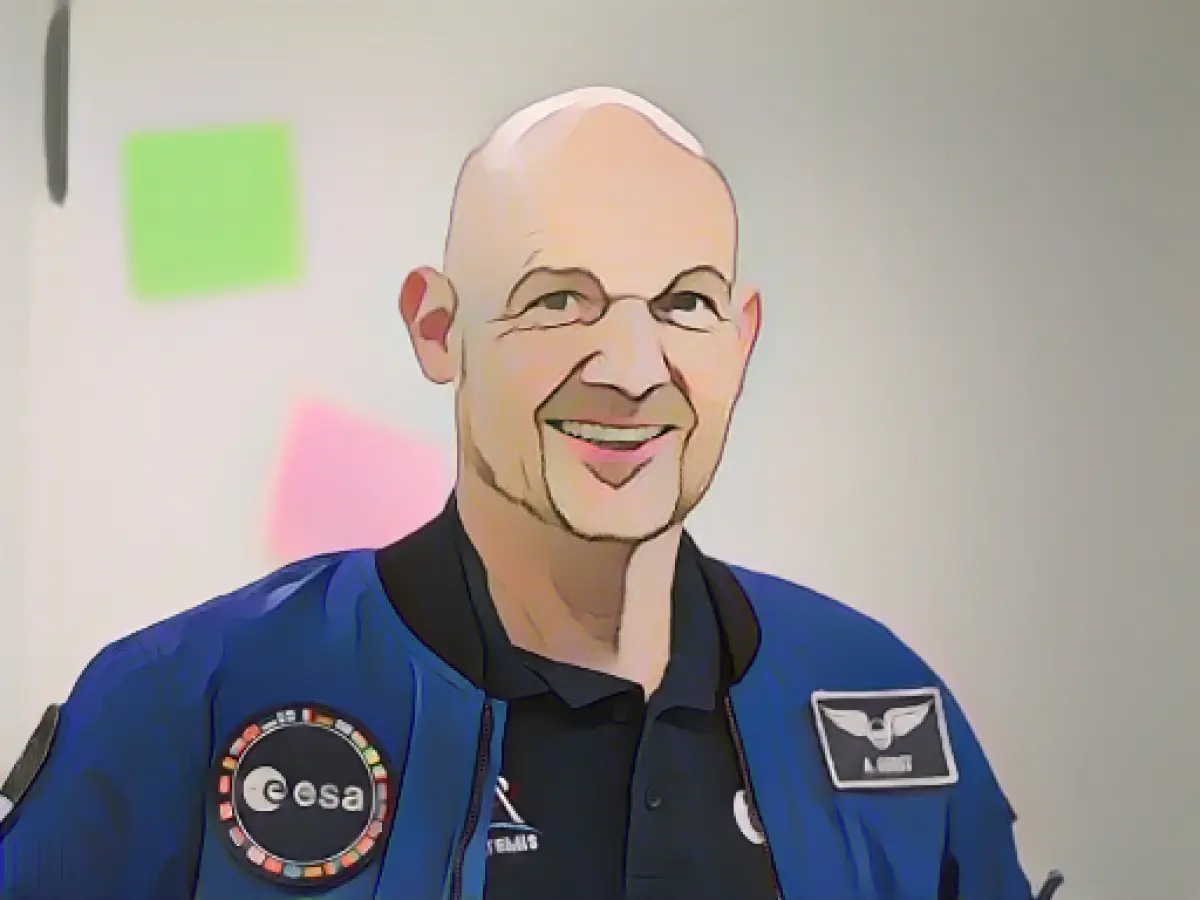Europeans on the moon? - "Ten on a scale of ten"
The German astronaut Alexander Gerst would very much like to be one of the people walking around on the moon again in the near future. Holding moon rock in his hand - that would be a "ten on a scale of ten" for him, Gerst told the German Press Agency (dpa) in Berlin. "As for all my colleagues." There are currently six active European astronauts with space travel experience.
However, it is still not certain whether there will be a European visit to the moon any time soon. There are no firm plans for an astronaut from the European Space Agency Esa to fly on the US moon mission "Artemis 2", which is currently scheduled for the end of 2024, nor for the "Artemis 3" launch planned for 2025, but only for "Artemis 4" and "Artemis 5", as Esa Director General Josef Aschbacher told dpa.
Only to the moon or also on it?
It is unclear whether she or he will then be one of the two of the four space travelers on the mission who will not only fly to the moon, but also set foot on it. "That has not yet been defined," said Aschbacher. The US space agency Nasa does not want to decide on this until after the "Artemis 2" flight.
Four US and Canadian astronauts are to orbit the moon on this mission in an "Orion" spacecraft, for which Esa is providing the European Service Module (ESM), built under the leadership of Airbus in Bremen. There will be no Americans on the moon again until Artemis 3.
China or the USA?
So far, the USA is the only country to have put space travelers on the moon: from 1969 to 1972, twelve US astronauts set foot on Earth's companion during the Apollo missions. Some experts believe another US moon landing is possible in 2027 at the earliest - and the competition is not sleeping: China wants to take astronauts to the moon by 2030, India by 2040.
As close as the new race to the moon between China and the USA could be, Esa boss Aschbacher has a clear favorite: "The next astronaut to stand on the moon will most likely be an American. Almost certainly, in fact."
Aschbacher is convinced that a lot will happen on the moon from the middle of the next decade. It is very likely that the first stations will be built on the moon, where astronauts will initially live for a few weeks, and later perhaps even for six months, as on the ISS space station.
Moon as a source of raw materials?
One aim of the nations is to secure potentially economically relevant claims, for example for the possible mining of raw materials such as rare earths. Aschbacher explained that the ownership claims for the moon are still largely unresolved. There are guidelines, but no binding treaties. The Artemis Accords initiated by the USA provide for rights of use for the location of a station - in other words, an indirect claim to ownership. However, the agreement has not been signed by major space travel nations such as China and Russia. "So there are many, many unanswered questions."
First come, first served - this will presumably also apply to claims on the moon. Aschbacher sees real long-term opportunities for economic growth generated there. Since, according to current knowledge, the moon was once split off from the Earth, very similar mineral resources are likely to be found there. These could initially be used to build lunar bases or produce fuels - and if transportation to Earth is economically viable for certain raw materials, this could also happen.
At the moment, with today's technology, it doesn't make sense to mine raw materials and transport them back to Earth, said Gerst. "But this is about looking into the future, not just ten years, but 100 years or more."
Aschbacher added that we can only speculate about other areas of business today, or not even imagine them yet. But they will exist. "I am 100 percent convinced of that." For many lunar projects, "the costs are higher than the benefits at the beginning, that's quite clear. But at some point, a benefit will develop there too."
- With significant advancements in science and technology, future space travel may allow people to not only visit the moon but also establish permanent astronaut settlements there for long-term astronomy observations and potential resource extraction, furthering our understanding of the universe and potentially benefiting Earth's economy.
- Advances in space travel and astronomy, such as European participation in future moon missions, could enable us to develop a deeper understanding of astronomy and potentially unlock valuable resources from the moon, opening new avenues for human space exploration and economic growth across different sectors, including raw materials mining.
Source: www.dpa.com








